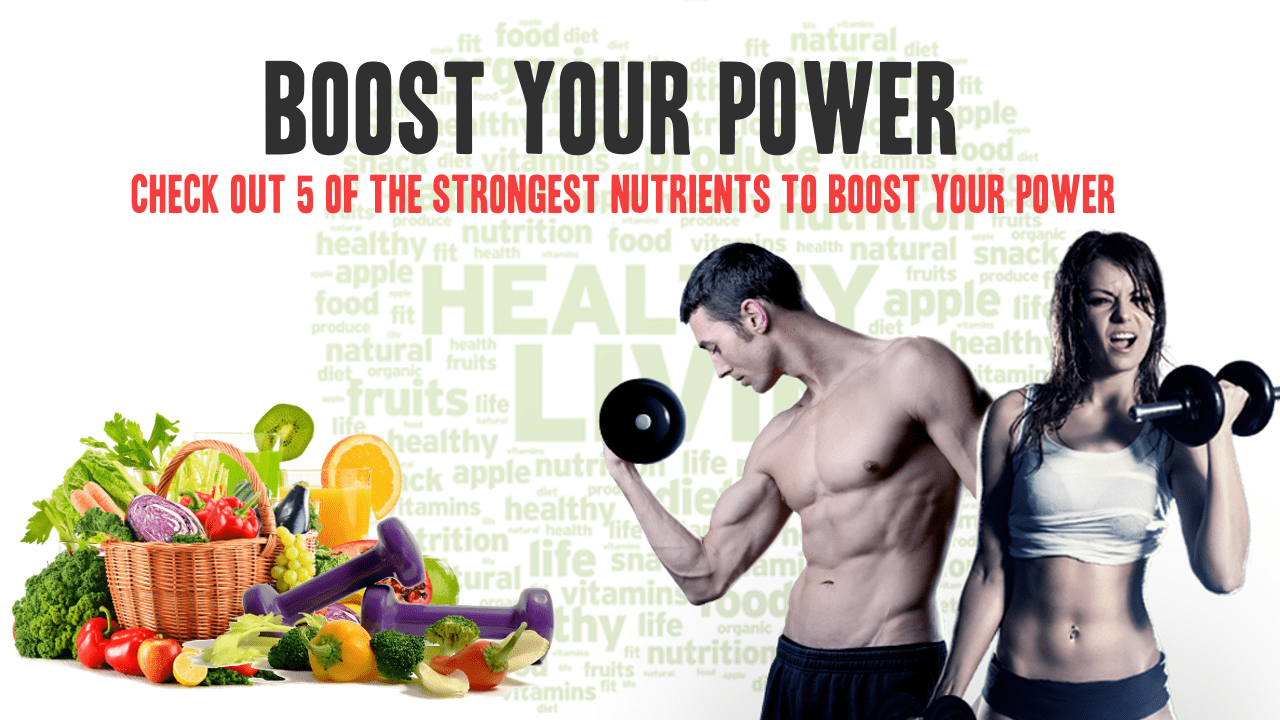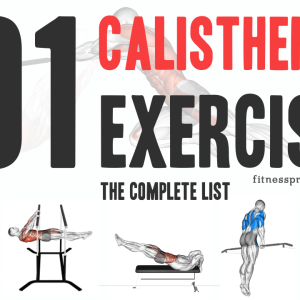Contents
Are you feeling run down and unable to keep up with the demands of daily life? We all need a boost in energy sometimes, but knowing where to start can be daunting.
What if we told you that diet is one of the best ways to increase your energy levels daily? That’s right – by eating nutrient-dense food packed with powerful minerals and vitamins, you can turn yourself into an unstoppable powerhouse.
Today we are exploring 5 of the strongest nutrients out there that will provide lasting energizing effects. Meanwhile, if you’re on the lookout to boost your power through workouts, check out Boost Your Power with Barbend’s Strongest Pre-Workouts guide to see how.
Anyways, if it has been a while since you felt at peak performance — let’s get started.
Vitamin C –
helps to boost your immune system and provides powerful antioxidants for fighting off illnesses
As we navigate through the flu and cold season, it’s more important than ever to boost our immune systems. One way to do that is to make sure we’re getting enough vitamin C. This important vitamin not only helps to protect our cells from damage but also supports the production of white blood cells, which are crucial in fighting off infections.
In addition, vitamin C acts as an antioxidant, helping to neutralize harmful free radicals that can wreak havoc on our bodies. So, whether you prefer to get your vitamin C from a juicy orange, a tart grapefruit, or a supplement, make sure you’re giving your immune system the support it needs to help ward off illnesses.
Here are some valuable sources of vitamin C:
- Citrus Fruits: Oranges, grapefruits, lemons, and limes are well-known sources of vitamin C. They are not only rich in vitamin C but also provide other beneficial nutrients.
- Berries: Strawberries, blueberries, raspberries, and blackberries are excellent sources of vitamin C. These fruits are packed with antioxidants and offer a range of health benefits.
- Kiwi: Kiwi is a small fruit that contains a significant amount of vitamin C. It also provides dietary fiber and other essential nutrients.
- Papaya: Papaya is a tropical fruit that is rich in vitamin C. It also contains enzymes, fiber, and other vitamins and minerals.
- Guava: Guava is a tropical fruit that is incredibly high in vitamin C. It is also a good source of dietary fiber and other important nutrients.
- Mango: Mangoes not only taste delicious but also provide a good amount of vitamin C. They are also a source of dietary fiber and vitamin A.
- Pineapple: Pineapple is a tropical fruit that contains vitamin C along with bromelain, an enzyme that aids digestion.
- Bell Peppers: Particularly red and yellow bell peppers are excellent sources of vitamin C. They are low in calories and offer additional health benefits due to their antioxidant content.
- Leafy Greens: Vegetables like kale, spinach, and Swiss chard contain vitamin C, along with other essential nutrients such as iron and calcium.
- Tomatoes: Tomatoes are not only a good source of vitamin C but also provide lycopene, an antioxidant associated with various health benefits.
Omega-3 Fatty Acids
-can help to reduce inflammation and improve cognitive abilities-
Omega-3 fatty acids have been making waves in the wellness industry for years, and it’s no surprise why. These crucial nutrients are well-known for their ability to reduce inflammation in the body. But, did you know that they also have potent cognitive benefits? Studies suggest that regularly consuming omega-3s can improve brain function, including memory, concentration, and problem-solving skills. Whether you’re looking to improve your overall health or enhance your mental prowess, adding more omega-3s to your diet is a smart move.
Here are some valuable sources of omega-3 fatty acids:
- Fatty Fish: Fatty fish are the richest sources of omega-3 fatty acids. Examples include salmon, mackerel, sardines, trout, and tuna. These fish contain high levels of eicosapentaenoic acid (EPA) and docosahexaenoic acid (DHA), which are the most beneficial forms of omega-3 fatty acids.
- Flaxseeds: Flaxseeds are an excellent plant-based source of omega-3 fatty acids. They contain alpha-linolenic acid (ALA), a type of omega-3 fatty acid. Ground flaxseeds are easier to digest and absorb, so it’s recommended to consume them in this form.
- Chia Seeds: Chia seeds are another plant-based source of omega-3 fatty acids, specifically ALA. They can be easily incorporated into various dishes, such as smoothies, yogurt, and oatmeal.
- Walnuts: Walnuts are tree nuts that provide a good amount of omega-3 fatty acids. They are also rich in other nutrients, such as fiber and antioxidants.
- Hemp Seeds: Hemp seeds are a nutritional powerhouse, containing a balanced ratio of omega-3 and omega-6 fatty acids. They are also a good source of protein and minerals.
- Algal Oil: Algal oil is derived from algae and is an excellent plant-based source of omega-3 fatty acids, particularly DHA. It is a suitable option for individuals following a vegetarian or vegan diet.
- Cod Liver Oil: Cod liver oil is extracted from the livers of cod fish and is a good source of omega-3 fatty acids, as well as vitamins A and D.
- Sardines: Sardines are small, oily fish that provide a significant amount of omega-3 fatty acids. They are also rich in other nutrients like calcium and vitamin D.
- Anchovies: Anchovies are small fish that are packed with omega-3 fatty acids. They are often used in sauces, dressings, and as a pizza topping.
- Spinach: While not as high in omega-3 fatty acids as fish or seeds, spinach is a leafy green vegetable that contains a small amount of ALA. It also provides a range of other vitamins, minerals, and antioxidants.
Magnesium
-a mineral essential for energy production, cell growth, and muscle health-
Magnesium is a mineral that should not be ignored in your health journey. This mighty mineral plays a vital role in energy production, cell growth, and muscle health. It helps to regulate more than 300 enzymes in the human body that contribute to various physiological functions.
From promoting healthy teeth and bones to aiding in the conversion of food into energy, magnesium plays a vital role. Adequate magnesium intake can also help reduce the risk of certain chronic diseases. With so many significant benefits, it’s crucial to ensure that you’re getting sufficient magnesium in your diet or through supplements.
Here are some valuable sources of magnesium:
- Nuts and Seeds: Pumpkin seeds, almonds, cashews, and Brazil nuts are all excellent sources of magnesium. Additionally, sesame seeds, flaxseeds, and chia seeds are good options.
- Dark Chocolate: Dark chocolate with a high cocoa content is not only delicious but also contains a decent amount of magnesium. Look for dark chocolate with at least 70% cocoa solids for the best magnesium content.
- Legumes: Legumes like black beans, chickpeas, lentils, and kidney beans are not only rich in dietary fiber and protein but also provide a good amount of magnesium.
- Leafy Green Vegetables: Spinach, kale, Swiss chard, and other leafy green vegetables are great sources of magnesium. These vegetables are also packed with other beneficial nutrients.
- Whole Grains: Whole grains such as brown rice, quinoa, oats, and whole wheat products contain magnesium. Opting for whole grains instead of refined grains ensures a higher magnesium content and more nutritional benefits.
- Avocado: Avocado is a nutritious fruit that provides a moderate amount of magnesium. It is also a good source of healthy fats and dietary fiber.
- Bananas: Bananas are not only a convenient and portable snack but also contain magnesium. They are also rich in potassium and other essential nutrients.
- Dairy Products: Dairy products like milk, yogurt, and cheese contain magnesium. However, it’s worth noting that the magnesium content may vary depending on the processing and fat content.
- Fish: Fatty fish such as salmon, mackerel, and halibut are not only excellent sources of omega-3 fatty acids but also provide magnesium.
- Tofu: Tofu, made from soybeans, is a plant-based source of magnesium. It is also a good option for vegetarians and vegans.
Iron
-helps to transport oxygen throughout the body, promoting healthy blood cells and reducing fatigue-
Iron is a vital nutrient for maintaining a healthy body. This mineral has a crucial role in the transportation of oxygen throughout the body. It binds to hemoglobin and helps to deliver oxygen to cells, providing the necessary energy for bodily functions.
With the lack of iron, the body cannot produce enough healthy red blood cells for adequate oxygen transport, leading to fatigue and weakness. Therefore, it’s essential to consume enough iron-rich foods to keep our blood healthy and oxygen flowing throughout our bodies.
Incorporating iron-rich foods such as spinach, beans, or red meat into our diet can help reduce fatigue and ensure a healthy blood cell count.
Here are some valuable sources of iron:
- Red Meat: Beef, lamb, and pork are excellent sources of heme iron, which is the most readily absorbed form of iron. Lean cuts of red meat can provide a significant amount of iron.
- Poultry: Chicken and turkey are good sources of iron, particularly the darker meat portions like thighs and drumsticks. Removing the skin before cooking can help reduce the fat content.
- Seafood: Certain types of seafood, such as oysters, clams, and mussels, are rich in iron. Fish like tuna, sardines, and salmon also contain iron, although in smaller amounts.
- Organ Meats: Organ meats like liver are highly concentrated sources of iron. However, they should be consumed in moderation due to their high vitamin A content.
- Legumes: Legumes, including lentils, chickpeas, black beans, and kidney beans, are excellent plant-based sources of iron. They are also high in fiber and provide other beneficial nutrients.
- Tofu and Tempeh: Tofu and tempeh, both made from soybeans, are good vegetarian sources of iron. They are versatile ingredients that can be included in various dishes.
- Spinach and Leafy Greens: Spinach, kale, Swiss chard, and other leafy green vegetables contain iron. However, the iron from plant sources is non-heme iron, which is less easily absorbed. Consuming these vegetables with a source of vitamin C can enhance iron absorption.
- Quinoa: Quinoa is a pseudo-grain that is relatively high in iron compared to other grains. It is also a good source of protein and dietary fiber.
- Nuts and Seeds: Certain nuts and seeds, such as pumpkin seeds, sesame seeds, and cashews, contain iron. They can be enjoyed as snacks or added to various dishes.
- Fortified Foods: Some foods, such as fortified cereals and bread, are enriched with iron. These products can be helpful for individuals who may struggle to meet their iron needs through natural food sources alone.
Zinc
-an essential mineral that helps with metabolism, cell division, wound healing, and more-
Zinc is a mineral that plays a crucial role in our body’s well-being. From metabolism to cell division, wound healing, and immune function, its benefits can never be ignored. This essential mineral is necessary for various biological processes and acts as a cofactor for many enzymes. Zinc is also responsible for regulating gene expression and maintaining DNA integrity. It supports our overall health and well-being, and a deficiency of this mineral can lead to several problems.
It’s essential to consume enough zinc to ensure that our bodies can perform their necessary functions properly. Don’t underestimate the power of this small but mighty mineral in your daily diet.
Here are some valuable sources of zinc:
- Shellfish: Shellfish, particularly oysters, are one of the richest sources of zinc. Other zinc-rich shellfish include crab, lobster, and mussels.
- Meat: Red meat, such as beef and lamb, is a good source of zinc. Pork, chicken, and turkey also contain zinc but in slightly smaller amounts.
- Legumes: Legumes like chickpeas, lentils, and beans (such as black beans and kidney beans) are not only high in fiber and protein but also provide a decent amount of zinc.
- Nuts and Seeds: Nuts like cashews, almonds, and peanuts are good sources of zinc. Pumpkin seeds, sesame seeds, and hemp seeds are also valuable sources of this mineral.
- Dairy Products: Dairy products like milk, cheese, and yogurt contain zinc. Opt for low-fat or skim versions for healthier options.
- Eggs: Eggs, particularly the yolk, provide a small amount of zinc. They are also a good source of high-quality protein.
- Whole Grains: Whole grains such as wheat, rice, and oats contain zinc, although the bioavailability may be lower due to the presence of phytates that can inhibit zinc absorption. Soaking, fermenting, or sprouting whole grains can help improve zinc availability.
- Poultry: Chicken and turkey are moderate sources of zinc. Choosing lean cuts and removing the skin can help reduce the fat content.
- Fortified Foods: Some foods, such as fortified cereals and nutritional yeast, are enriched with zinc. These can be helpful for individuals who may have difficulty meeting their zinc needs through natural food sources alone.
The Benefits of Adding These Nutrients Into Your Diet
Eating a balanced diet rich in essential nutrients is essential for optimal health and well-being. Nutrients such as vitamins, minerals, and antioxidants play a crucial role in enhancing physical and cognitive performance and keeping illnesses at bay.
Incorporating a variety of nutrient-dense foods into your meals can help you reap the benefits, from boosting energy levels to improving mood and supporting immune function.
For example, potassium-rich foods like bananas and sweet potatoes can help regulate blood pressure and protect against stroke, conversely, meals high in omega-3 fatty acids, such as salmon and walnuts, can enhance brain function and reduce inflammatory responses in the body.
By making a few changes to your eating habits and prioritizing nutrient-dense foods, you can enhance your overall health and feel better from the inside out.
In Conclusion
The five essential nutrients outlined here can help you to improve your overall health and achieve better physical performance. Vitamin C helps with immune system functions while Omega-3 fatty acids and magnesium reduce inflammation and boost energy production respectively. Iron transports oxygen, allowing for sustained exercise, and zinc helps with the body’s metabolism and repair systems.
Eating a varied and balanced diet is key to ensuring that you are getting enough of these important nutrients every day. Yet adding in nutrient-rich foods in particular can give a powerful ‘power boost’ as they provide your body with all the fuel it needs to get the most out of your workouts.
Thus, if you want to increase endurance, reduce fatigue, build more muscle, or simply put an extra ‘oomph’ into everything you do –start including essential nutrients into your daily meals today.



